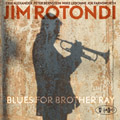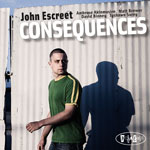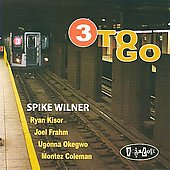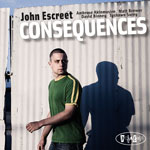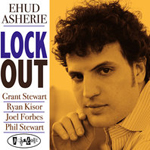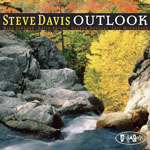A rather special addition to the Ray Charles tributes.
Published on June 16, 2009
Jim Rotondi – Blues for Brother Ray – Posi-Tone PR8045, 52:01 ****1/2:
(Jim Rotondi, trumpet; Eric Alexander, tenor sax; Peter Bernstein, guitar; Mike LeDonne, organ; Joe Farnsworth, drums)
Jim Rotondi has always been one of my favorite young jazz trumpeters. His playing has added much to the super hard bop group, One For All, who are the closest thing to a classic Art Blakey and the Jazz Messengers band for the new millennium. This reviewer eagerly awaits each One For All release as they bring a fresh approach to 50s-60s Blue Note quality hard bop.
When I heard that Rotondi had released a tribute CD to Ray Charles, I had hope that this would not be another rote addition to the numerous Ray Charles tributes that have inundated CD shelves at your local store. Charles was always loved and appreciated even when he rested on his laurels late in his career. With his passing, he has been re-appreciated for the genius that he was. Charles covered all the bases from R & B, soul, jazz, and even country. Few if any others can make claim to his fearlessness in bringing his soul touch to even the most mundane song. His numerous versions of “Georgia” will never be matched.
Rotondi’s paean to Brother Ray has all the elements of what is needed to pass the test. Of course, we have the Rotondi trumpet power, finesse with brashness. Who better to take on the requisite tenor sax post than Eric Alexander, who to me has taken on the leading role as young tenor becoming a fixture on the jazz scene, and likely to move into the future as “our” old school quality tenor for the newer generation of jazz fans. A smart choice was including Peter Bernstein to play guitar, as Peter is THE first choice jazz guitarist for a hard bop or soul jazz session. When Dr. Lonnie Smith comes calling for a guitarist, Peter is often his man, which is a compliment bar none. Mike LeDonne, who can equally shine on piano or organ, here gets to add the funk needed on organ.
Rotondi covers all Charles classics you’d expect from What’d I Say, Baby It’s Cold Outside, Cry Me a River, to, of course, Georgia. Each has a freshness, yet enough of a Charles read, that you can’t help cracking a knowing smile as you know that the inimitable Ray Charles would have given his head nodding approval.Posi-Tone is a relatively new label with less than ten releases. Jim Rotondi’s Blues for Brother Ray, will certainly have music lovers checking out their web site for other releases. A positive marketing move for Posi-Tone!
TrackList: What’d I Say, Baby It’s Cold Outside, Brother Ray, Cry Me a River, One Mint Julep, Makin Whoopee, Lonely Avenue, Georgia
-Jeff Krow
